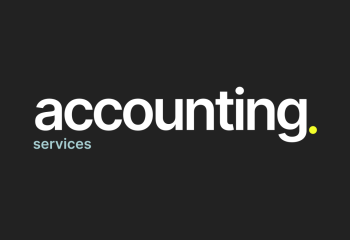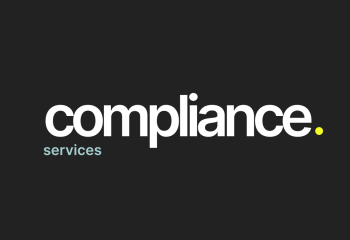International Financial Reporting Standards (IFRS): Challengs And Opportunities For Businesses
Views: 1024
The article discusses IFRS (International Financial Reporting Standards), which enhances transparency and attracts investment. However, businesses face challenges such as costs, complexity, and differences from national accounting standards. Effective adoption requires a clear plan, staff training, and technology investment.
(2).png)
Concept and Role of IFRS
IFRS (International Financial Reporting Standards) is a set of international accounting standards established by the International Accounting Standards Board (IASB). The primary objective of IFRS is to provide a unified framework for financial reporting, enhancing transparency, consistency, and comparability across businesses globally.
A notable feature of IFRS is its principles-based approach, which requires companies to apply accounting methods based on the economic substance of transactions rather than rigid rules. Some key IFRS standards include:
· IFRS 9: Financial instruments.
· IFRS 15: Revenue from contracts with customers.
· IFRS 16: Leases.
· IAS 1: Presentation of financial statements.
Challenges for Businesses in Adopting IFRS
a. Implementation Costs and Training
· Employee training: Accountants, financial managers, and auditors must thoroughly understand the standards and how to apply them in practice.
· Upgrading technology systems: Many companies need to enhance their accounting and financial management systems to meet the detailed and complex requirements of IFRS.
· Consultation and professional support: Businesses often rely on assistance from professional auditing and consulting firms.
b. Complexity of Standards
Some IFRS standards require intricate evaluations and analyses, such as:
· Revenue recognition (IFRS 15): Businesses must clearly identify performance obligations in contracts.
· Financial instruments (IFRS 9): The classification and measurement of financial instruments require extensive knowledge and supporting tools.
c. Impact on Financial Statements
Changes in methods for recognizing assets, liabilities, and revenues can lead to fluctuations in key financial indicators. This might affect stakeholders' trust if companies fail to explain these changes clearly.
d. Disparities between National Standards and IFRS
Many countries have yet to fully adopt IFRS, leading to inconsistencies in financial reporting when businesses operate across multiple jurisdictions.
Opportunities from IFRS Adoption
a. Enhanced Transparency and Comparability
IFRS improves the transparency of financial reporting, enabling investors, shareholders, and partners to compare the performance of businesses more effectively. This is especially beneficial in highly competitive industries such as finance, real estate, and manufacturing.
b. Attracting International Investment
International investors often prefer businesses that follow IFRS because it ensures transparency and reliability. Adopting IFRS also facilitates capital raising through stock or bond issuance in global markets.
c. Supporting Global Economic Integration
In the context of globalization, IFRS adoption facilitates mergers and acquisitions (M&A) and helps businesses expand operations into international markets more smoothly.
d. Improving Corporate Governance
IFRS standards require businesses to use measurement methods based on fair value, thereby improving the quality of financial information. This supports leadership in making precise and effective business decisions.
e. Meeting Market Demands
Many international partners and clients require businesses to apply IFRS in transactions. Compliance with IFRS helps businesses expand opportunities for collaboration and strengthen their market position.
Preparation Steps and Solutions
a. Developing a Transition Plan
Businesses need to build a clear roadmap for each stage of IFRS implementation, from assessing the current state to execution and review.
b. Training and Developing Personnel
Staff should be equipped with in-depth knowledge of IFRS. This applies not only to accounting teams but also to senior management.
c. Partnering with Experts
Using consulting services from international auditing and advisory firms helps businesses save time and reduce risks during the transition process.
d. Investing in Technology
Accounting and financial management systems must be robust enough to handle the data requirements of IFRS. Companies should also consider integrating data analytics tools to improve management efficiency.
e. Communicating with Stakeholders
Businesses need to clearly explain the changes in financial reporting due to IFRS adoption to ensure consensus and maintain trust among shareholders, investors, and partners.
Conclusion
Adopting IFRS is both a challenge and a significant opportunity for businesses in the context of global economic integration. While it requires substantial investment in time, costs, and resources, IFRS offers numerous advantages, such as improved transparency, enhanced investor confidence, and greater competitiveness. Therefore, businesses must prepare thoroughly and implement appropriate strategies to fully leverage the benefits of IFRS adoption
Written: Nguyen Hoang Viet - Accounting Assistant - Accounting& Tax Department
Date: 14/02/2025














(2).png)











![?️ [ALTAS TALK IS COMEBACK | SERIES: “TAX MATTERS 2025”] ?️ [ALTAS TALK IS COMEBACK | SERIES: “TAX MATTERS 2025”]](thumbs/210x144x1/upload/news/altas-talkintro-7705.png)



